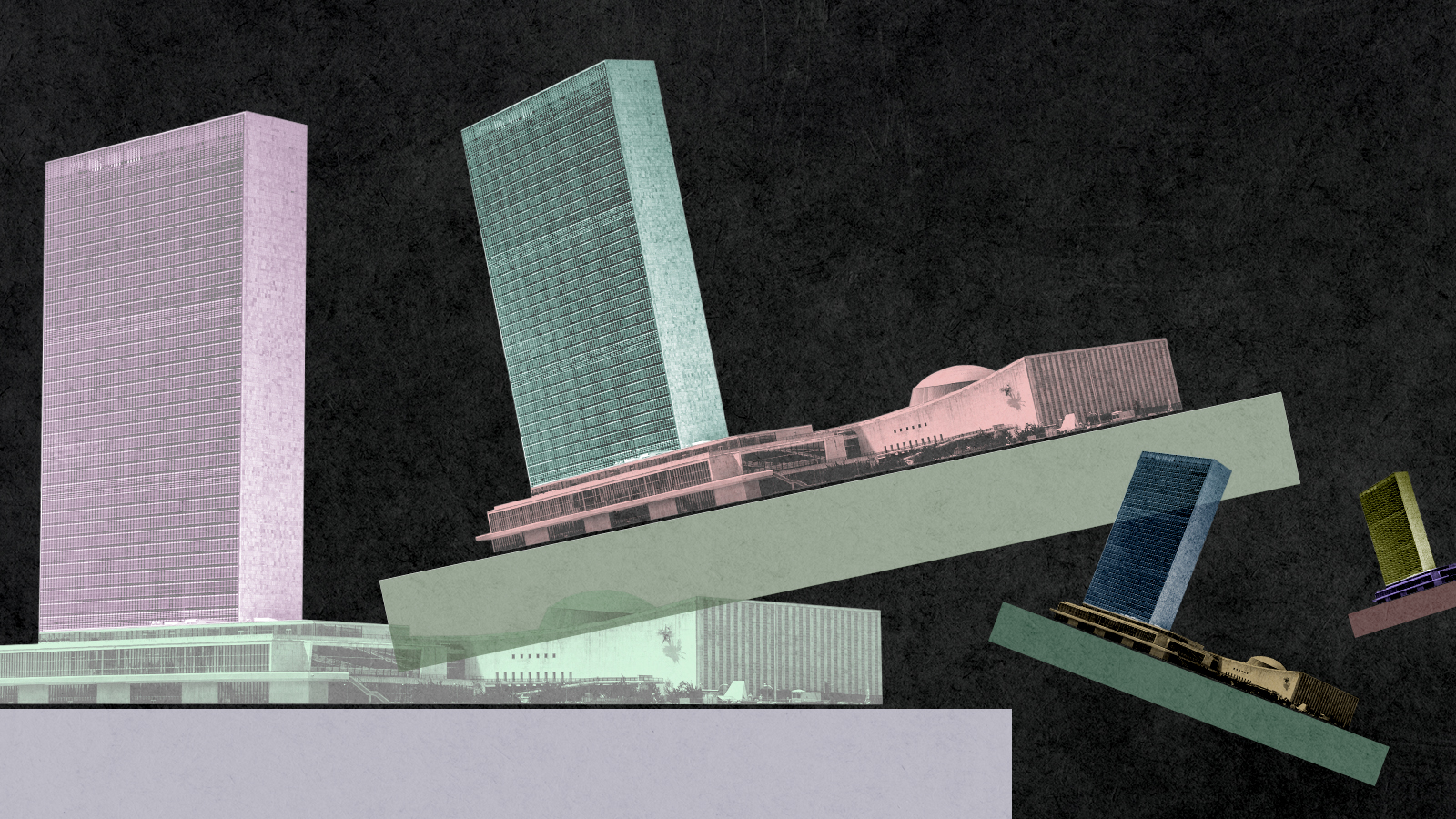The irrelevance of the United Nations


A free daily email with the biggest news stories of the day – and the best features from TheWeek.com
You are now subscribed
Your newsletter sign-up was successful
Did you hear that the U.N. General Assembly voted last week to remove Russia from the Human Rights Council? You'd be forgiven if not. President Biden praised the decision as "historic" and a "meaningful step by the international community." But it barely cracked the algorithms that are the 21st-century replacement for the front page.
This isn't the only recent U.N. action that's evaded much notice. Early last month, the body passed a resolution demanding that Russia withdraw its forces from Ukraine. Like the decision regarding the Human Rights Council, it made little impression on either the news or the course of events.
The irrelevance of the U.N. to the war in Ukraine doesn't just reflect the body's failure to live up to expectations for worldwide cooperation that surrounded its formation at the end of World War II. It's the consequence of a dramatic decline in relevance over the last few decades. Not quite 20 years ago, the organization was the main forum for debate about the Iraq War — including the late Colin Powell's notorious speech asserting Saddam Hussein's government possessed weapons of mass destruction.
The Week
Escape your echo chamber. Get the facts behind the news, plus analysis from multiple perspectives.

Sign up for The Week's Free Newsletters
From our morning news briefing to a weekly Good News Newsletter, get the best of The Week delivered directly to your inbox.
From our morning news briefing to a weekly Good News Newsletter, get the best of The Week delivered directly to your inbox.
Although they turned out to be false, Powell's claims about WMDs were based on the premise that the U.N. mattered. He wasn't the only one to think so. In the 1990s, "black helicopter" theories that the U.N. was planning to take over the U.S. government were a staple of the flourishing militia movement. These fears were obviously fanciful. But they too assumed that the U.N. was a significant body capable of influencing and perhaps controlling world affairs.
No one believes that anymore. With its credibility undermined by the revival of open competition among great powers, ineffective peacekeeping missions in Africa, fruitless diplomacy in the Middle East, and corruption scandals, the U.N.'s reputation is at its lowest ebb at least since the late 1960s, when Soviet opposition helped stymie collective action.
In the past, American presidents have invested in periodic attempts to rebuild the U.N., which they've seen as an effective platform for American values and interests. This time, however, the U.N. may have fallen too far to be saved. Like its landmark headquarters building in New York, the U.N. has become a relic of 20th-century optimism, unsuited to harsher times. The proof isn't that we care what it does — it's that we don't.
A free daily email with the biggest news stories of the day – and the best features from TheWeek.com
Samuel Goldman is a national correspondent at TheWeek.com. He is also an associate professor of political science at George Washington University, where he is executive director of the John L. Loeb, Jr. Institute for Religious Freedom and director of the Politics & Values Program. He received his Ph.D. from Harvard and was a postdoctoral fellow in Religion, Ethics, & Politics at Princeton University. His books include God's Country: Christian Zionism in America (University of Pennsylvania Press, 2018) and After Nationalism (University of Pennsylvania Press, 2021). In addition to academic research, Goldman's writing has appeared in The New York Times, The Wall Street Journal, and many other publications.
-
 Colbert, CBS spar over FCC and Talarico interview
Colbert, CBS spar over FCC and Talarico interviewSpeed Read The late night host said CBS pulled his interview with Democratic Texas state representative James Talarico over new FCC rules about political interviews
-
 The Week contest: AI bellyaching
The Week contest: AI bellyachingPuzzles and Quizzes
-
 Political cartoons for February 18
Political cartoons for February 18Cartoons Wednesday’s political cartoons include the DOW, human replacement, and more
-
 Epstein files topple law CEO, roil UK government
Epstein files topple law CEO, roil UK governmentSpeed Read Peter Mandelson, Britain’s former ambassador to the US, is caught up in the scandal
-
 Iran and US prepare to meet after skirmishes
Iran and US prepare to meet after skirmishesSpeed Read The incident comes amid heightened tensions in the Middle East
-
 Israel retrieves final hostage’s body from Gaza
Israel retrieves final hostage’s body from GazaSpeed Read The 24-year-old police officer was killed during the initial Hamas attack
-
 China’s Xi targets top general in growing purge
China’s Xi targets top general in growing purgeSpeed Read Zhang Youxia is being investigated over ‘grave violations’ of the law
-
 Panama and Canada are negotiating over a crucial copper mine
Panama and Canada are negotiating over a crucial copper mineIn the Spotlight Panama is set to make a final decision on the mine this summer
-
 Why Greenland’s natural resources are nearly impossible to mine
Why Greenland’s natural resources are nearly impossible to mineThe Explainer The country’s natural landscape makes the task extremely difficult
-
 Iran cuts internet as protests escalate
Iran cuts internet as protests escalateSpeed Reada Government buildings across the country have been set on fire
-
 US nabs ‘shadow’ tanker claimed by Russia
US nabs ‘shadow’ tanker claimed by RussiaSpeed Read The ship was one of two vessels seized by the US military
